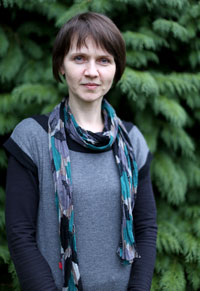Reinterpreting National Ideology in the Contemporary Urban Space of Astana

 Dr Nelly Bekus, alongside Kulshat Medeuova (Eurasian National University, Astana, Kazakhstan) has recently published the article Reinterpreting National Ideology in the Contemporary Urban Space of Astana in the Urbanities Journal. This forms part of a Special Issue: The Dreams and Nightmares of City Development Vol. 7 · No 2 · November 2017.
Dr Nelly Bekus, alongside Kulshat Medeuova (Eurasian National University, Astana, Kazakhstan) has recently published the article Reinterpreting National Ideology in the Contemporary Urban Space of Astana in the Urbanities Journal. This forms part of a Special Issue: The Dreams and Nightmares of City Development Vol. 7 · No 2 · November 2017.
The article analyses the way in which the Soviet legacy has been combined with practices of public representation of national ideology in the space of the new capital city of Kazakhstan, Astana. It examines how cultural and political elites exploit various archaic elements of the traditional imagery of the nation in the context of modern state-building. Referring to various examples in cityscape the article aims to show how the national ideology handles tradition not as a coherent corpus of ‘inheritance’, but as a reservoir of potential symbols, which can be used creatively for the fashioning of a national image of the capital city both in the international and in the domestic arena.
→ Download article: Reinterpreting National Ideology in the Contemporary Urban Space of Astana






